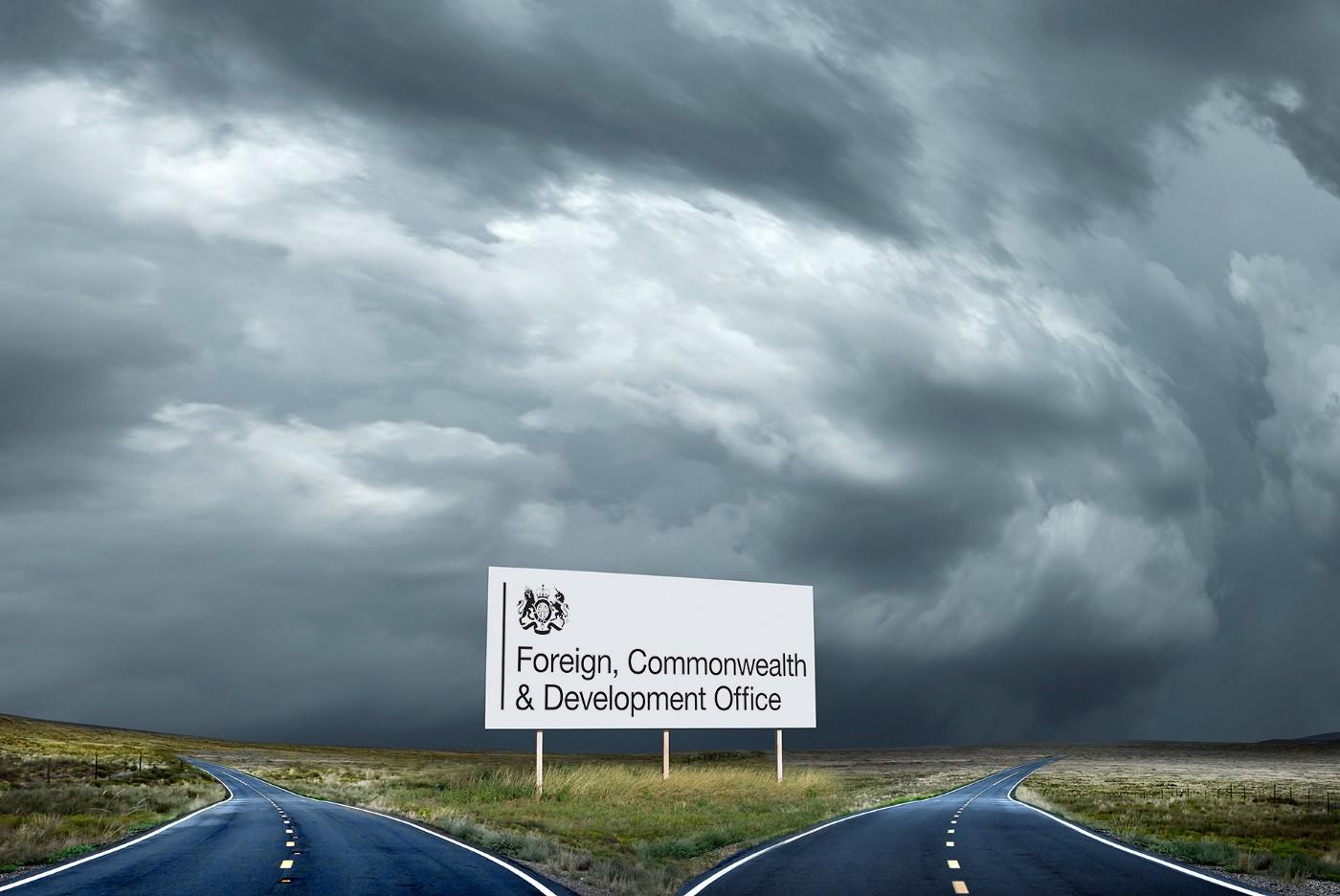Blog
After DFID: does anti-corruption have a future under FCDO?

It’s goodbye to the Department for International Development (DFID) as it closes its doors after 23 years. A speck of time in the history of global development, of course. Yet while it was around, it gave the world a clear statement as to the purpose of ‘aid’, or as Clare Short rechristened it, ‘international development’. The change was far from an exercise in semantics.
It embodied a shift in the fundamentals of how ‘aid’ should work. It was different to the way that had been made familiar to domestic taxpayers. That version was dominated by images of charitable assistance: throwing food bundles out of the backs of planes after a natural catastrophe. When not responding to emergencies, aid was usually set up simply to substitute for local deficiencies. It plugged gaps in the delivery of essential services that were not being filled by incompetent or corrupt governments. Aid was simply a way to ameliorate immediate everyday suffering.
Re-thinking the aid mission as ‘development’ brought huge changes, both in task and ambition. I’ve offered my own perspective and many eyes will be keenly watching the ‘smoke signals’ emerging from the new Foreign, Commonwealth and Development Office (FCDO). Some wisps have already been detected, on organisation and on priorities. For those worried that this merger means official development assistance (ODA) will become just another tool for pursuing raw national interest, these early signs are less than encouraging.
Travelling back in time …
FCDO embarks on its diplomacy and development mission unlike any of the recent converts to an integrated approach. In its senior staffing announcements, it appears that FCDO, despite its title, does not intend to have ‘development’ as an institutional focus. This differs from the models of Australia and Canada (neither of which, ironically, transplanted ‘development’ into the new titles of the replacement departments), both of which have discrete divisions on ‘global development’ within their organisational structures. FCDO has no senior official with such a remit in a senior leadership team largely, and classically for a foreign ministry, organised around geographical responsibilities. Perhaps putting it in the title was thought to be enough.
And from the tone of the first announcement of FCDO on its opening day on 2 September 2020, its opportunity to define its vision of the task, we seem to have gone back 50 years. The framing of the mission as essentially humanitarian relief may make it easier on the eye for a domestic constituency losing patience with the problems of the outside world. Yet we risk regressing to the ‘Lady Bountiful’ imagery of the past, with all its ill consequences.
Barbara Castle, the first Minister of Overseas Development, wrote in her diaries of the creation of the first independent aid ministry in 1964 (which lasted until 1970): ‘We had been heartened by [Prime Minister] Harold Wilson’s creation of … the Ministry of Overseas Development with a seat in the Cabinet as a guarantee that overseas aid was no longer to be regarded as a charitable donation from rich to poor but as an essential motor to world development’.a465afe1f6ad
In three short months since the announcement of the current merger in June, we seemed to have travelled back to the era before The Beatles.
This really does matter. The extent to which systemic issues like anti-corruption, indeed governance more generally, survive in the new regime will depend crucially on whether the ‘development’ mindset is preserved, working to change underlying causes. Or whether we return to an ‘aid’ approach of transactional activities that perpetually only ‘fire-fight’ symptoms of dysfunctionality.
As we are learning in anti-corruption, the effort required is about more than providing a few transactional ‘leg-ups’ — training courses, some technical kit, and help with writing better laws. It could all too easily end up like this.
But it doesn’t have to. Surprisingly, there is in the FCO–DFID merger strong potential for the outcome on the anti-corruption front to be a good deal better. It will, however, take some visionary minds to achieve this.
Towards a better future?
As I argued in my final U4 practitioner experience note, the opportunity for greater coherence between the efforts of an aid provider and the ‘non-aid’ levers available to other parts of government is unquestionably improved by the merger. In theory, an ‘all-of-government’ approach on corruption will be easier to develop. In theory.
The breadth of reach for UK anti-corruption efforts also ought to be greater. DFID focused on around 30 priority countries. FCDO has posts in virtually every country on the planet and, of these, 142 are eligible for ODA. Again, in theory, the merged enterprise could open up nearly five times as many places as DFID could reach to help tackle corruption.
There is, again in theory, the potential for much more flexible working practices than DFID used. At the risk of caricaturing, DFID, as most donors do, lived, breathed and thought in terms of projects. That is, thousands upon thousands of artificial mini-worlds, each usually hermetically sealed from everything else, and each constrained by the boundaries they place around themselves, of purpose, resource, time and place.
Diplomats think rather differently. Again, at the risk of caricature, the diplomatic skill is not managing projects, but managing relations and connections. Diplomats operate at the big picture level, investing in long-term influencing. Leaving aside the critical question of ‘influencing for what?’, the core skillset of diplomats offers new opportunities for anti-corruption. The chance to move away from rigid projects and towards more fluid thinking about how to induce change in a system, gives the new FCDO potential new pathways in anti-corruption.
And FCDO possesses a recent innovation the like of which DFID never managed: the Diplomatic Academy. This structured approach to cross-organisation learning offers huge potential for inculcating governance development issues like anti-corruption to staff members working across the globe.
So, there are glimmers of potential that, if developed, do offer prospects of FCDO being better than the sum of it previous parts, at least in anti-corruption.
Whose interests?
But the challenges in getting there should not be underestimated. Go back to that question of ‘influencing for what?’. A quick visit to the home page of the Diplomatic Academy illustrates the ‘elephant in the room’ for a development programme merged inside a foreign ministry. The mission statement is unequivocal: ‘Ensuring we all have the knowledge and expertise we need to represent the UK and pursue the national interest’.
It is an inescapable theme running through the entire recent debate about the merits of the merger. Whose interests will now be served by the development programme? There is a deep fault line that carves through the cultures of these two communities. What was seen as marking DFID as different was its centre of attention: poor people in other countries. Where other departments of state worried about looking after the UK first and foremost, development practitioners in DFID thought first about others. These opposites are not unbridgeable, but to do so will take conscious effort.
If FCDO merely sleepwalks into the future, we can expect a shrivelling of the ambition and a narrowing of the use of ODA as just an extra way to advance our own national interests. For as 1960s Canadian Prime Minister Lester Pearson admitted (at a time when no-one thought of leaving one’s house without headgear): ‘Foreign policy is merely domestic policy with its hat on’.
- Quoted in Peter Hennessy’s magisterial survey Whitehall (Secker & Warburg, London 1989), p407.
Disclaimer
All views in this text are the author(s)’, and may differ from the U4 partner agencies’ policies.
This work is licenced under a Creative Commons Attribution-NonCommercial-NoDerivatives 4.0 International licence (CC BY-NC-ND 4.0)


